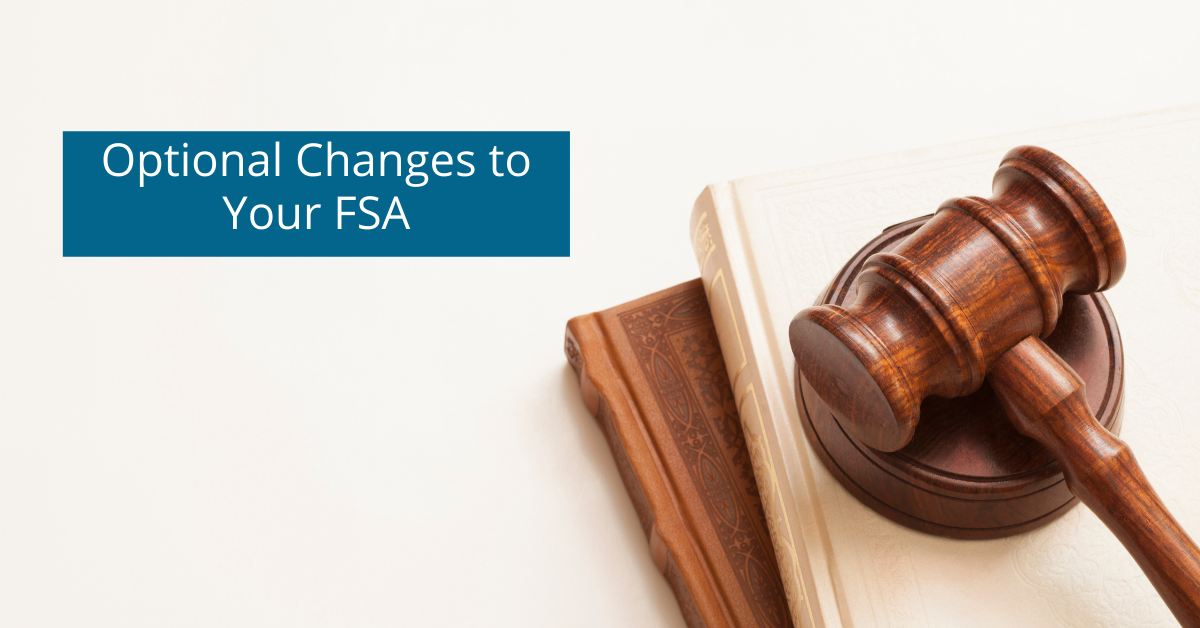2FA for P&A Participants

As the pandemic continues, more help is available for FSA participants with the latest FSA COVID relief bill. Under the Consolidated Appropriations Act of 2021, new options are available for employers to adopt to their 2020 or 2021 FSA plans. While these options are not mandatory, they can help participants from losing funds, among other significant impacts.There are a lot of changes to consider. Below is a summary of every provision you can add to your FSA.
Does your FSA have the Health FSA carry forward provision? If so, now is your opportunity to temporarily remove the maximum carry forward limit on your 2020 or 2021 plan year (or both). Under this provision, participants can roll over any unused Health FSA balance into the next plan year. Previously, the carry forward limit was capped at $500 or $550.
As you probably know, the carry forward provision only applies to the Health FSA – until now. Under the new COVID relief bill, employers can temporarily add the carry forward provision to the Dependent Care account. Many Dependent Care FSA participants are on the brink of forfeiting unused funds due to the pandemic. Making this option available is a great way for parents and participants to exhaust funds they might otherwise lose.
Employers with a grace period have the option once again to extend it 12 months after the end of the plan year. Earlier this past spring, the IRS previously allowed for certain plans to extend their grace period. In particular, plans with grace periods ending before December 31, 2020 had the option to extend their grace period until December 31, 2020. Under the new legislation, employers could extend the grace period again.For example, let’s say your plan year is July 1, 2019 – June 30, 2020. Because your plan has a grace period, you decided to take advantage of the extension option earlier last year. Your new plan end date was temporarily modified to December 31, 2020. Now, under the new legislation, the end date can be extended again through to June 30, 2021 (12 months after the original plan end date).
Not surprisingly, the IRS once again is giving employers the option to allow for mid-year changes. Typically, mid-year changes are only allowed if a participant experiences a qualified change in status, like marriage or the birth of a child. Under the new legislation, however, participants can change their FSA election mid-year without a change in status. With this provision, FSA participants will be given more flexibility in changing their contribution amounts as needed.
Previously, your dependent child had to be 13 years of age or under for you to receive reimbursement on eligible daycare expenses. Now, the IRS is allowing for reimbursement of expenses for dependent children up to age 14, if this provision is adopted. Extending the eligibility age, even by one year, will help some parents whose beneficiaries aged out during the pandemic.
Typically, participants can only receive reimbursement of FSA expenses that were incurred while actively employed. However, under the new option provision, terminated participants have the opportunity to receive reimbursement from unused benefits or contributions through the end of the plan year when participation ceased (including grace periods). This provision applies to Health FSAs and Dependent Care FSAs.
While these provisions are not mandatory, it’s prudent to consider the options. With so many Americans hit hard by the pandemic, temporarily relaxing some of the FSA rules can prevent participants from losing valuable funds.An amendment will be required to adopt any of the provisions. If you would like to add any of the relief options to your plan, please contact your P&A account manager. You can also send us an e-mail at marketing@padmin.com and we will connect you with your dedicated manager.Want to learn more about our products and services? Visit our website.